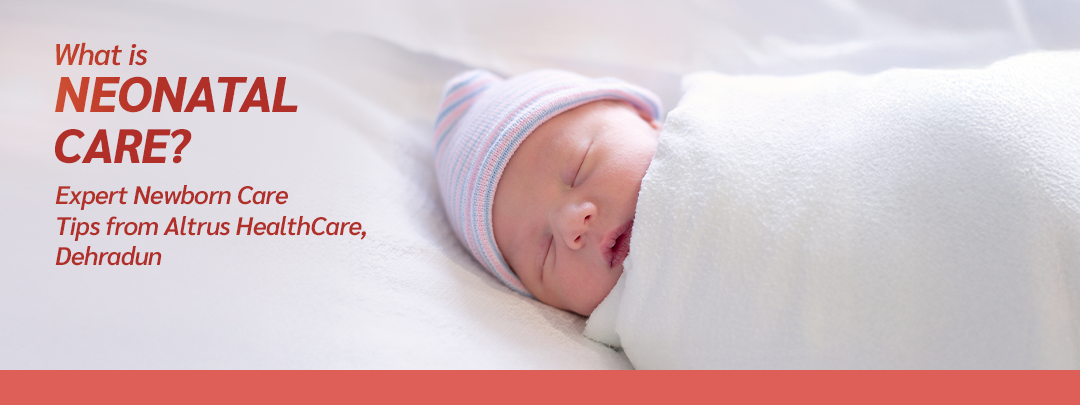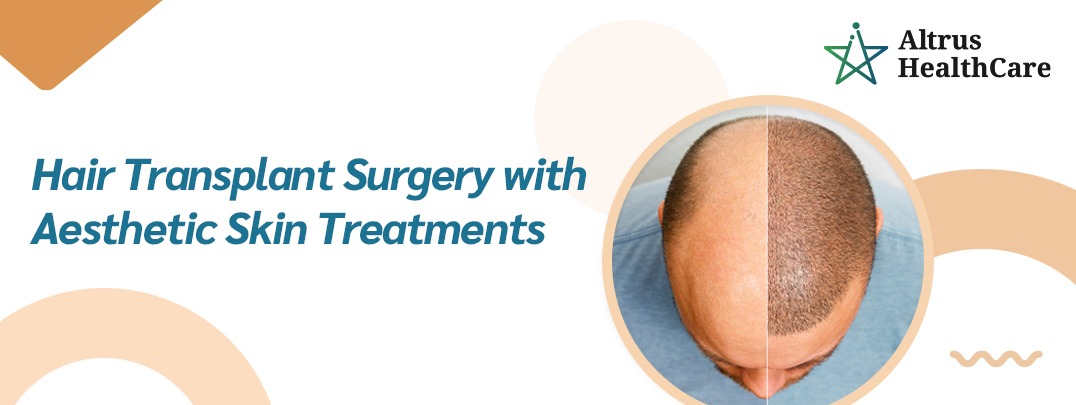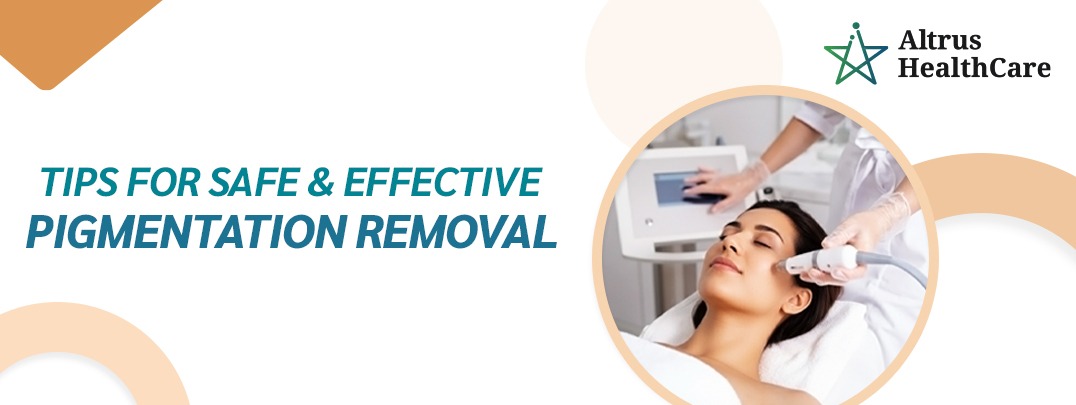Congratulations on your bundle of joy! Bringing a newborn into the world is both magical and transformative. At Altrus HealthCare: Dehradun’s premier child specialist hospital, we understand the joys and anxieties that do accompany this new chapter. The first 28 days of life, known as the neonatal period, are vital for ensuring your baby’s healthy development. Our team of leading paediatricians and neonatologists shares this evidence based guide to help you care for your newborn with confidence:-
Why the Neonatal Period Matters:
According to the Indian Academy of Pediatrics (IAP) and the American Academy of Pediatrics (AAP), the neonatal phase is foundational for long-term health. It’s a time of rapid physical adaptation where support, cleanliness, and nutrition play life-shaping roles.
Common Newborn Concerns to Watch For:
It is completely normal to feel overwhelmed. It is indeed not the overwhelming and anxiety it is the endearing affection and love. It is worth to understand that Newborns may experience:
- Some decrease in the weight in first week of life
- Mild jaundice
- Feeding difficulties
- Dehydration or infections if hygiene is compromised
Important things to remember:
While Mild weight loss (up to 10% in full term newborn and 15% in preterm newborn) is considered normal , the baby must regain it by 10 days in case of full-term baby and 15-21 days in preterm baby with a maximum daily weight loss of not more than 3%, any aberration to this rule will warrant immediate medical attention.
Similarly, Mild Jaundice is considered normal if it is within the prescribed limits for age, weight and gestation. It should start by day three of life and subside gradually. Any jaundice which appears before 3rd day, if there is some mismatch in blood groups of mother and baby, very high colour, feeding difficulties, unusual cry or lethargy, pale or white stools, etc. (any one of these) is noted it must be brought into notice of a neonatologist.
Any degree of fever, refusal to feed, rashes, watery diarrhoea or bleeding must attract immediate medical attention.
The paediatric team at Altrus HealthCare provides round-the-clock neonatal monitoring to promptly address any early complications.
How to take care of the Newborn:
1. Gentle Handling & Hygiene
Newborns are delicate and vulnerable. Here is what every caregiver must follow:
- Ensure hand hygiene before touching the infant.
- The infant should be nicely supported.
- Absolute ‘NO’ to any form of shaking, not even playfully
- Limit visitors and insist on hand hygiene
American Academy of Pediatrics guidelines stress meticulous hygiene in preventing sepsis (Infection) and respiratory infections in the first month.
2. Umbilical Cord Care: Keep It Clean & Dry
The umbilical stump typically detaches within 7-14 days (It must not be more than 21 days).
Until the stump falls:
- Do not pull or try to forcefully detach it
- Do not apply anything unless prescribed by a Pediatrician /Neonatologist
- We advocate sponging rather than baths especially in cold weather
- The signs like redness, swelling, discharge or odour should be carefully watched and a pediatrician or neonatologist must be contacted immediately of any one of the above is noted.
Dry cord care has been advocated as standard or care by Indian academy of Pediatrics (Provided it is not soiled)
3. Breastfeeding & Burping Basics
Breastfeeding is nature’s best gift for babies. We recommend:
- Starting the breast feeding within 2 hours of birth (preferably within an hour)
- Feed exclusively for 6 months
- Seek lactation support if needed
After feeding:
- The infant should be held baby supported by your hand and chest
- Gently pat their back until they burp (It is prudent to learn the burping procedure form a Pediatrician / Neonatologist or a lactation consultant)
Reflux (regurgitation) and infantile colic are reduced by effective burping (Cloherty’s textbook of Neonatology)
4. Establishing Healthy Sleep Patterns:
The little ones sleeps in small cycles and accounts for almost sixteen to eighteen hours a day.
- Infants must be placed on their back (An higher death rate has been noted in infants who are allowed to sleep on their bellies unsupervised because of SIRS)
- Use a firm, clutter-free mattress
- Maintain a cool, dark room environment
- Stick to a consistent bedtime schedule
American Academy of Pediatrics’ Safe Sleep Guidelines reduce the risk of SIDS significantly.
5. Nappy Changing & Rash Prevention
Expect 3–4 wet nappies daily by day 4–5. Keep baby comfortable with:
- Warm water and sterilized cotton clothes or unscented wipes should be used
- Nappies of the infant should be changed regularly, to keep him dry
- Zinc oxide-based diaper rash cream when needed (prudent to take a consultation)
Frequent urination is a one of most reliable sign of adequate hydration and adequate feeding.
Why Altrus HealthCare?
We combine world-class paediatric expertise with an ethical and human-first approach and round the clock availability of best neonatal team.







